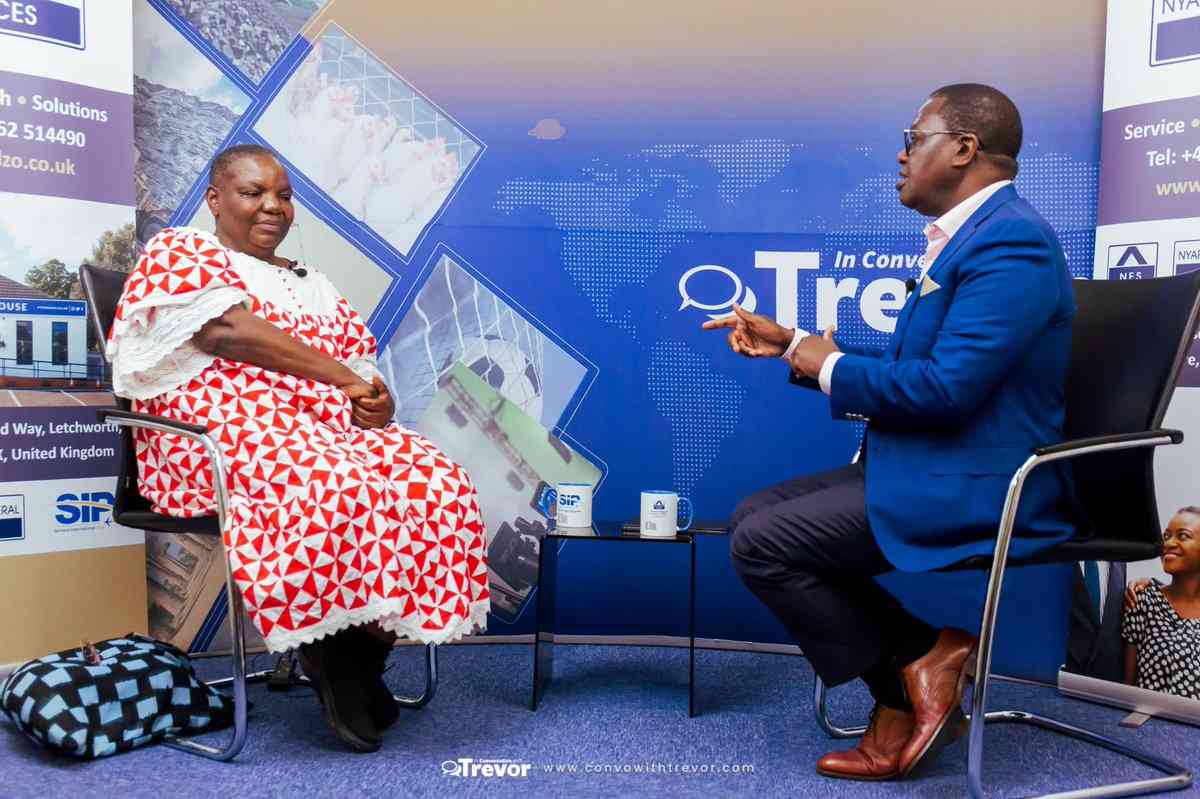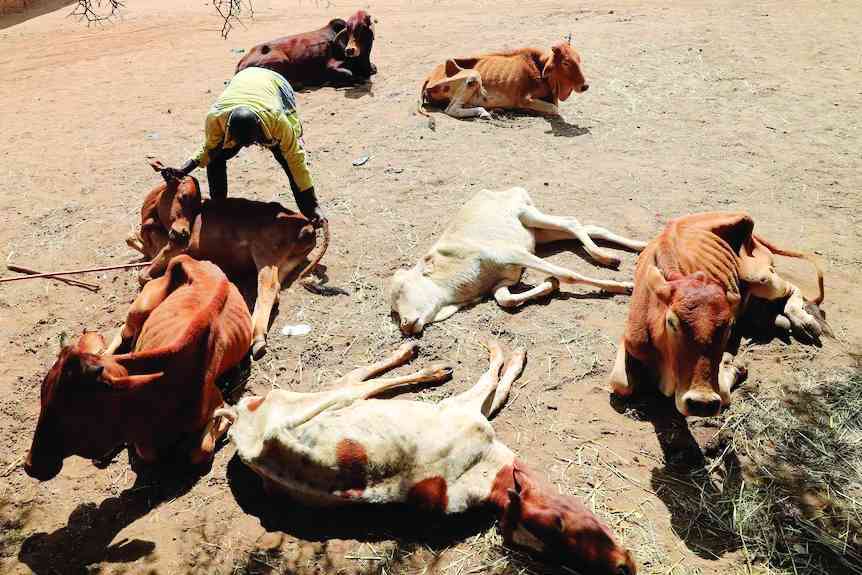
United Kingdom-based social entrepreneur Nyasha Gwatidzo says her motivation is to make a difference in children’s lives as much as possible.
Gwatidzo (NG) spoke about her passion when she appeared on the platform In Conversation with Trevor hosted by Alpha Media Holdings chairman Trevor Ncube (TN).
Below are excerpts from the interview.
TN: Greetings, welcome to In Conversation with Trevor. Today I’m in conversation with Nyasha Gwatidzo, a social entrepreneur.
We are so grateful that you, you’re not well, but you’ve managed to come and sit here. So we’re absolutely grateful for your time. Thank you.
NG: Thank you very much for having me. It›s a pleasure.
TN: You›ve got an amazing story. Shall we start with the way you came into this country? You came in as a refugee.
NG: When I was doing my secondary school, my parents were political refugees.
- Mavhunga puts DeMbare into Chibuku quarterfinals
- Bulls to charge into Zimbabwe gold stocks
- Ndiraya concerned as goals dry up
- Tarakinyu, Mhandu triumph at Victoria Falls marathon
Keep Reading
They were very involved in the Zanu PF movement, very strong Mugabe supporters, and it wasn’t safe for us to continue living in Zimbabwe. And so we came to this country when I was a child.
TN: What year was that, Nyasha?
NG: 1975. And they went back to Zimbabwe during the independence in 1980. And I was doing my A-levels.
And I was left in the UK, actually living with my chemistry teacher. I was doing my Form 4 then. And that’s it. I never went back to Zimbabwe.
My life happened, got married, had children. Now I’m a grandmother.
TN: Have you been home of late?
NG: I go to Zimbabwe a lot, mainly because of my charity I set up. I co-founded it with my mother about 25 years ago.
TN: Is this The Warner Trust?
NG: Yes.
TN: Does it feel like home?
NG: It does. And I always used to have this debate with my late mother. Whenever I was in Zimbabwe, I would say, oh, mom, I want to go home.
She used to say, you’re home. I have this dilemma of where home is.
TN: Is that dilemma settled?
GT: It is settled in my mind. Zimbabwe is my home.
TN: Zimbabwe is your home, but you’re a British citizen?
NG: I'm a British citizen, but Zimbabwe is my home.
TN: Interesting tension, isn’t it?
NG: It's an interesting tension. And which one I was struggling with.
TN: If you are born in Africa, there’s something about Africa which just helps you to the core to remain committed to that light. Does the UK feel like home?
NG: It does feel like home in some instances, but many times I’m reminded that this is not my home.
TN: What reminds you that it's not your home?
NG: My race, my colour, my challenges I find in my work, in my personal life.
They are sort of daily reminders where you find yourself. You’re the only black woman on the table. You know what I mean? So you’re reminded all the time.
TN: Are there any painful reminders that this is not home that you›ve encountered that you can recall?
NG: Some of the challenges have been extremely unfair and challenging. And the way to deal with it is how do you let these challenges get in the way of, for me, get in the way of progress.
And I always say, you know, and I’m not patronising anyone, that I do it despite being black, being a woman, being an African, trying to do business or make an impact in the UK.
TN: You just do it despite, not because you are. Is it tough?
NG: And the toughest thing is the no’s and the walls get built around you. And I’m always saying, how do I turn this no into a yes?
And it’s about continuing to go back and say, I know you said no. And but, you know, what do I need to do or say for you to say yes?
And if they give you or come back to us a year later, and they’re always quite shocked, a year later, I put it in my diary.
I go back. You told me to come back, and they say ‘Oh, my God, we thought you were never going to come back, you remembered.
TN: That sounds like resilience. Is that what it means to live in this country?
NG: Yeah, you need to be extremely resilient and extremely determined and be very clear why you’re doing whatever, you know, the motivation.
I’m always saying the motivation, I’ve got to be really clear. It’s got to be bigger than you, because if it’s not big enough, you can easily give up.
TN: What’s your motivation?
NG: To make a difference to children›s lives. And pick that as much as possible. To make a difference.
TN: What does that mean?
NG: To really make an impact. For me, I›m really passionate about children. And all my life, I have worked with disadvantaged children.
I work with the most disadvantaged children in this country who are in the care system.
Children in the care system who find themselves, for whatever reason, they can’t live with their birth parents. And some of them are disabled.
Some of them have learning difficulties.
Some of them are suffering from mental health difficulties, and for me, it’s trying to make, even if it’s an hour, of making a difference with that child, to give them hope and to give them opportunities.
TN: What kind of opportunities do you find are open for those kinds of kids?
NG: Simple things like a two-week work placement. We›ve had to educate employers, say, you know, there›s a child in care.
They are still children. Why don’t you give them a work placement? Why don’t you give them experience?
They are interested in whatever it is. For them to just come to your workplace for two weeks.
Simple things like if they’re interested in something and really pursuing and arguing and advocating with the local authority.
Look, this child is really talented in this. They might not be academic, but they’re quite talented in this.
It was me and my older sister. We went by train and slept at Zazi Primary and then took another train to Victoria Falls and slept at Chinotimba Primary School and I've actually got pictures of that.
In fact if you go on my website, you'll see that and I think that that was a lasting memory for us; going out there and seeing the world.
Growing up, I knew Victoria Falls, so I think there was almost a connection with Victoria Falls and perhaps if I can also maybe share another anecdote.
I remember when I was now working, I think in South Africa, I was doing a presentation and for some reason I ended up at one of the corners of the valley at Victoria Falls all by myself and I looked around and there was nobody else and instead of being scared funny enough I was actually very calm and I remember I actually said, the day I die I want my ashes over the Victoria Falls and this is before the hotel thing.
But to go back to your question I think I always saw myself as a corporate person and I was lucky that I worked for big corporate organiSations like British Airways, Zimbabwe Sun Crystal Hospitality and so forth.
I knew how to build a hotel. So by the time I think around 2008 thereabouts I remember saying I'd love to own something in Victoria Falls.
“In Conversation With Trevor” is a weekly show brought to you by HStv and broadcast on YouTube.com//InConversationWithTrevor.










